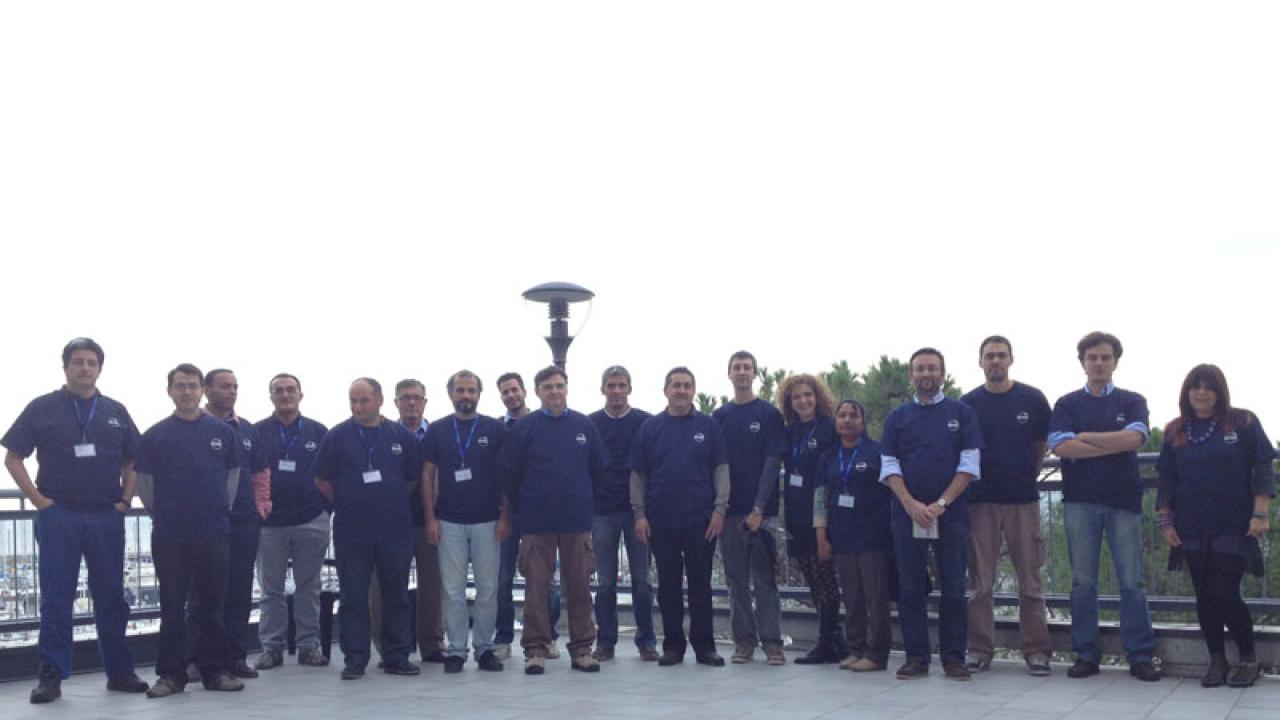
At a recent, first-time meeting for users of ICTP's automated
classroom recording system openEyA, a clear picture emerged of how
this innovate technology is revolutionizing traditional classroom
teaching.
"OpenEyA dramatically changes the way students study," said
meeting participant Armando Pisani, a teacher who installed openEyA
in a classroom to record lectures in algebra and calculus. He said
that the recordings provide a new, effective option for students to
review and learn new concepts. "Students like the fact that
with openEyA, they can re-listen to classroom lectures at home, and
it helps increase their level of understanding," he
explained.
Enrique Canessa, who together with colleagues Carlo Fonda and
Marco Zennaro in ICTP's Science Dissemination Unit developed the
EyA system, said that the team were pleasantly surprised at how
openEyA users are customizing the flexible tool for their own
needs. He gave as an example, "Some users in Portugal have adapted
a low-cost, optic lens that provides an improved focus for better
output quality."
Canessa added that thanks to the meeting, SDU is developing a wish
list that they will refer to when planning upgrades to the EyA
product. One such upgrade under consideration is to have a liveEyA
version of the software that allows the live transmission of
scientific events over the internet; SDU also will soon have an
OpenEyA version for Macintosh computers.
Another new area for openEyA will be its use on smartphones; to
that end, SDU will deploy new versions of the software for Android
and iOS phones.
Discussions during the last part of the openEyA users meeting
focussed on multilingual content issues, specifically on how to
create a repository of openEyA-recorded educational materials
already available in Spanish and Portuguese. "Through our
participating institutions, we have more than 400 hours of complete
courses," said Canessa. He explained that the materials will be
collected and stored on a web portal titled "Didactica para el
Desarrollo" (didactic development), or DxD.tv. "This repository
will preserve the cultural diversity of recordings made in
different languages," said Canessa.
















